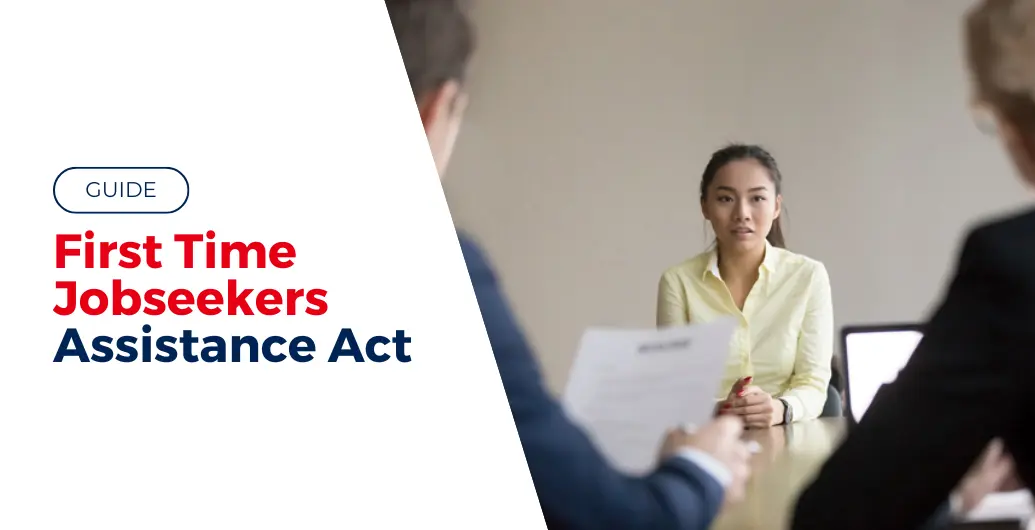(Updated: July 22, 2024)
Did you know that when you are a first time job seeker, you can avail government documents for FREE? With that, have you heard about R.A. 11261 or the First Time Jobseekers Act? This article will give you all the vital information you need to know.
What is the First Time Jobseekers Assistance Act?
Due to unemployment rates and issues in the Philippines, and in recognition of the government’s significant role in providing employment opportunities for all, they enacted the Republic Act No. 11261 (RA 11261), also known as the First Time Jobseekers Assistance Act. It was approved by President Rodrigo Roa Duterte on April 10, 2019.
In this pursuit, all government agencies and instrumentalities, including government-owned and controlled corporations (GOCCs), local government units (LGUs), and government hospitals, shall abstain from collecting fees or charges from first-time job seekers as long as these fees or charges are relevant with the application form and the granting of licenses, proofs of identification, clearances, certificates, or other documents required for employment.
Government Documents Included in the First Time Jobseekers Assistance Act
Under this law, first-time job seekers will have free access to the following documents:
- Police clearance certificate
- National Bureau of Investigation clearance
- Barangay clearance
- Medical certificate from a public hospital
- Birth certificate
- Marriage certificate
- Transcript of academic records issued by SUCs
- Tax Identification Number (TIN)
- Unified Multi-Purpose ID (UMID) card
- Other documentary requirements issued by the government that employers may require for job applicants.
Who Can Avail of RA 11261?
The Implementing Rules and Regulations specify who is eligible to benefit from the provisions of this law. The applicant must be:
- A Filipino citizen,
- A first-time job seeker,
- Actively looking for work or employment, and
- A resident of the barangay issuing the barangay certification for at least 6 months.
The mentioned barangay certification is a document required to prove one’s eligibility to avail and benefit from this act.
The benefits are valid for one year from the date of issuance of the Barangay Certificate.
A first-time job seeker may have earned:
- an associate or bachelor’s degree,
- completed a technical-vocational course, or
- graduated from high school after completing the K-12 program.
Other first-time job seekers are also eligible:
- out-of-school youth,
- those not employed or engaged in education or training,
- students on leave, or
- anyone planning to work while enrolled in any school, college, university, or learning institution.
How to Avail of the First Time Jobseekers Assistance Act?
To avail of the benefits of the First Time Jobseekers Assistance Act, you need to show proof from your barangay that you are seeking employment for the first time.
Usually, this is in the form of a Barangay Certification signed by the Punong Barangay or their authorized representative, saying that you are a first-time job seeker.
However, the provisions of this law do not apply to individuals who are already beneficiaries of the Jobstart Program under RA No. 10869, as well as those who are beneficiaries of other laws that provide payment exemptions for the documents or transactions mentioned above.
To ensure the smooth implementation of this program, the government agencies involved are required to keep and update a list of all first-time job seekers who have been issued free documents under this act.
This list will be submitted to the Department of Information and Communications Technology on a regular basis (DICT). In turn, the DICT is required to compile a database that is easily accessible to all relevant agencies. This is to ensure that individuals can only benefit from RA 11261 once.
Closing Thoughts
The First Time Jobseekers Assistance Act aims to promote full employment and equality of gainful work and opportunities for Filipino citizens by increasing access to government services and providing incentives to improve employment access. Through this act, no one will be left out when it comes to finding their future occupation. Are you ready to begin your journey as a first-time jobseeker? Check out our job opportunities page to check out hiring positions today! – WhatALife!
Also read: Department of Agriculture – Job Vacancies / Hiring Positions 2022

Leave a Reply